Fitting in got you down? You’re not alone
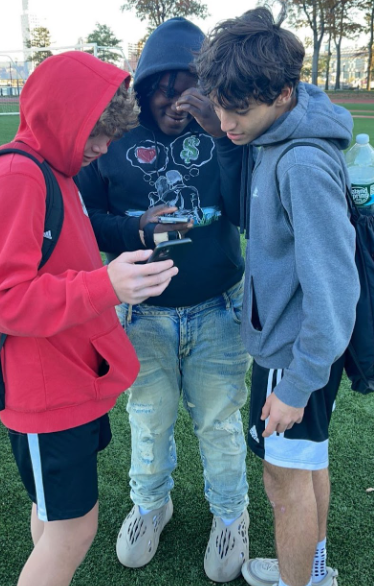
(L.-r.): Juniors Jacob Brown, Wycliffe Stephenson and Elyes Bouchik bond at lunchtime.
November 18, 2022
Having friends is important to all of us. But how many times have you allowed your desire for friendship to get in the way of your schoolwork, your goals, or even your personal identity?
Mean Girls is an iconic movie about a girl who was homeschooled her whole life and is thrown into the wilderness of public high school, navigating her way through friends, school work, boys, etc. In a way, everyone just wants to fit in, and that can be hard for so many teenagers in the world. For Cady, the protagonist in the movie, being accepted meant that she was considered cool and respected at the expense of losing her real friends who had a genuine interest in supporting her.
Usually, we make friends by striking up a conversation with someone and realizing that we share similar interests. Kidshealth.org suggests that kids bond based on similar interests and that the kids within these groups feel more supported by their peers and feel more secure in being themselves around their friends. However many kids especially in high school may have the desire to be “cool” or “popular,” and that’s where conformity comes into the picture.
Whether we’re aware of it or not, we all conform in one way or another. Conformity according to Dr. Saul McLeod and other studies cited in his article, is defined as a type of social influence involving a change in belief or behavior in order to fit in with a group. Can you think of a time when you changed some aspect of yourself to fit in? Abigail Fernandez, a Junior at Museum School, described how she had to change how she talked around her friends to avoid getting “canceled.” “In middle school, it was mostly people of color, so I spoke how they spoke, but now I kind of censor myself,” she said.
Sophomore Danny Smith said, “I just code-switch, basically,” touching on the subject of peer pressure and how that can influence decisions, good or bad, to fit in. “There’s an underlying drive to make those people like you, and you end up doing things you don’t want to do.”
These two students illustrated their experiences and insight into how they had to change themselves to be accepted. When asking Abigail if a friendship was an honest friendship if she had to change herself to fit in she responded, “I think it could be an honest friendship just because sometimes it can change you for the better, it doesn’t necessarily have to be a bad thing.” In Abigail’s situation her ability to conform or adjust how she spoke allowed her to connect with different people, giving her more opportunities for example leading the Women’s Empowerment Club for two years.
Psychologist Arthur Jenness, the first to study conformity in 1932, performed an experiment where he had participants individually estimate how many beans were inside a glass bottle. He then placed all participants in the same room and asked them to estimate how many beans were inside the glass bottle. This time, however, he asked them to come up with an answer together. Jenness then asked the participants to estimate the number of beans individually once more to find out whether they would change their initial guess based on the group’s answer. When individually interviewing the participants, asking them if they’d like to change their original guess or stick with the group’s answer, almost all of the participants chose to change their individual guesses to be closer to the group’s estimate.
Cady, the protagonist from Mean Girls, just in case you forgot, was extremely good at math and enjoyed it, too. She pretended to struggle with math to get a boy to give her attention. Instead of Cady being herself she tried imitating how the other girls in the school behaved even after being questioned about it by her math teacher, Ms. Norbury. Ms. Norbury encouraged Cady to continue being herself similar to the interaction between Dr. Jenness and the participants in his study.

Senior Isabelle Brown believes that finding friends at school has helped her academically. “You always have someone to bounce ideas off of, and if you’re ever going through something in a certain class…you’re confident enough to express if you don’t understand something..” Isabelle is confident enough to ask her friends for help so she can come up with her own ideas instead of going with the majority decision as demonstrated in Jenness’s conformity experiment.
Jenness’s experiment is an example of compliance conformity established by Herbert Kelman who was a Social Ethics Professor at Harvard University. Compliance conformity is when an individual accepts influence because they want a specific reward to avoid punishment. In simpler words compliance conformity is when you go with the majority decision despite whether you agree with it or disagree.
Social worker Ms. Matelus had this to say about cliques, friend groups, and the struggles that may come with trying to join either one, “I wouldn’t say they’re [students] struggling to find their identity. I think they’re struggling to find out what friendship matches who they are.”
Freshman Dylan Mrozinski talked about his experience in trying to get people to like him when playing basketball. “I never really wanted to play basketball in elementary school, but a lot of the people that I talk to play basketball, so I kind of thought that to fit in I would play basketball like them.” Going back to what Kidshealth.org said about how teenagers make friends, Dylan thought he had to have the same hobby as the kids he was friends with in order to stay friends with them. In this case, basketball did not match who Dylan is.
At the end of Mean Girls, Cady wins Spring Fling Queen. Although half of the school didn’t like her anymore, Cady takes it upon herself to break the crown into smaller pieces and share it with everyone. Solving friendship problems isn’t as simple as this. But as Brown said, who has navigated four years of the balance of school and friends, “You will find your people, you just have to give it time.”











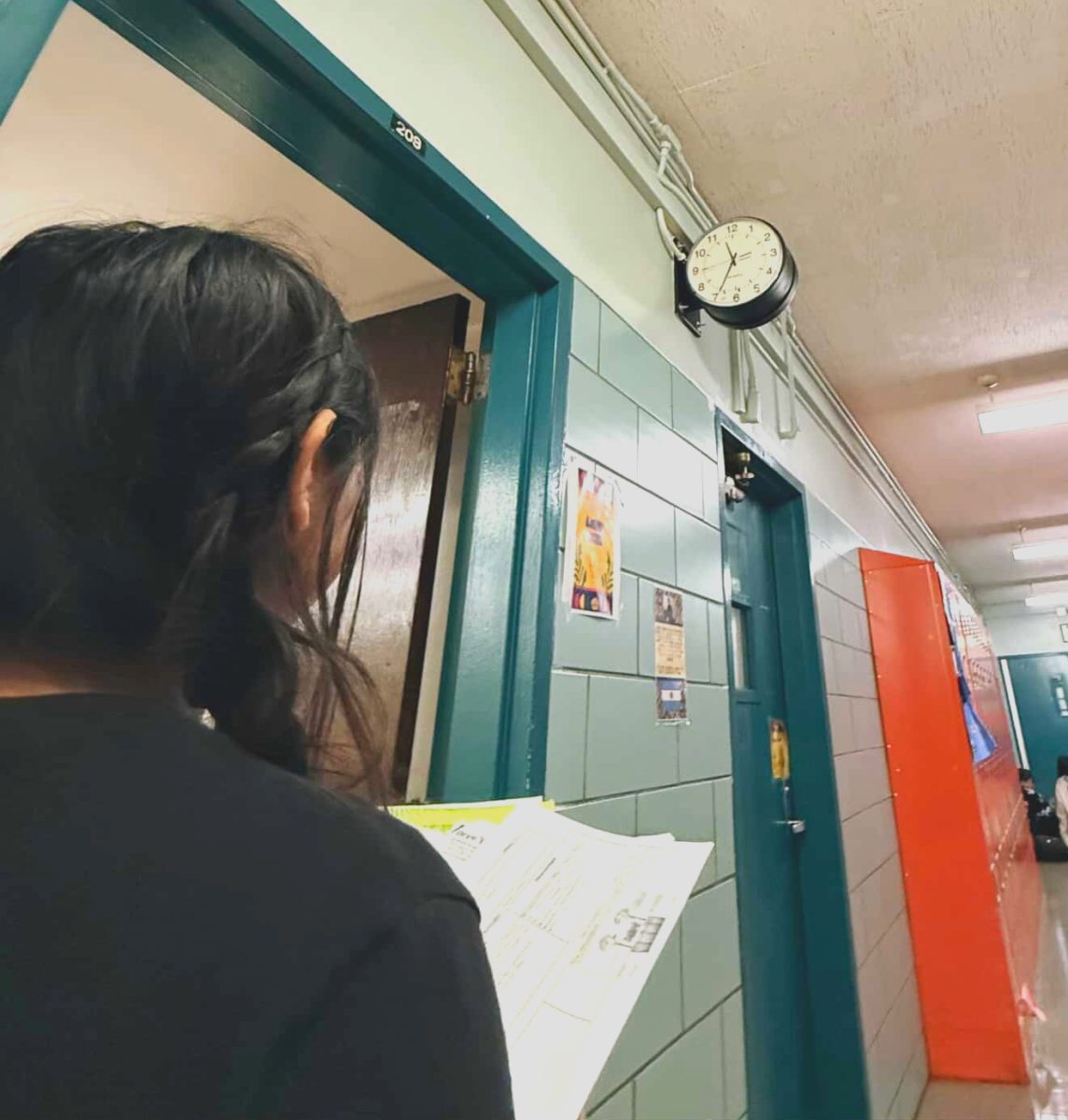
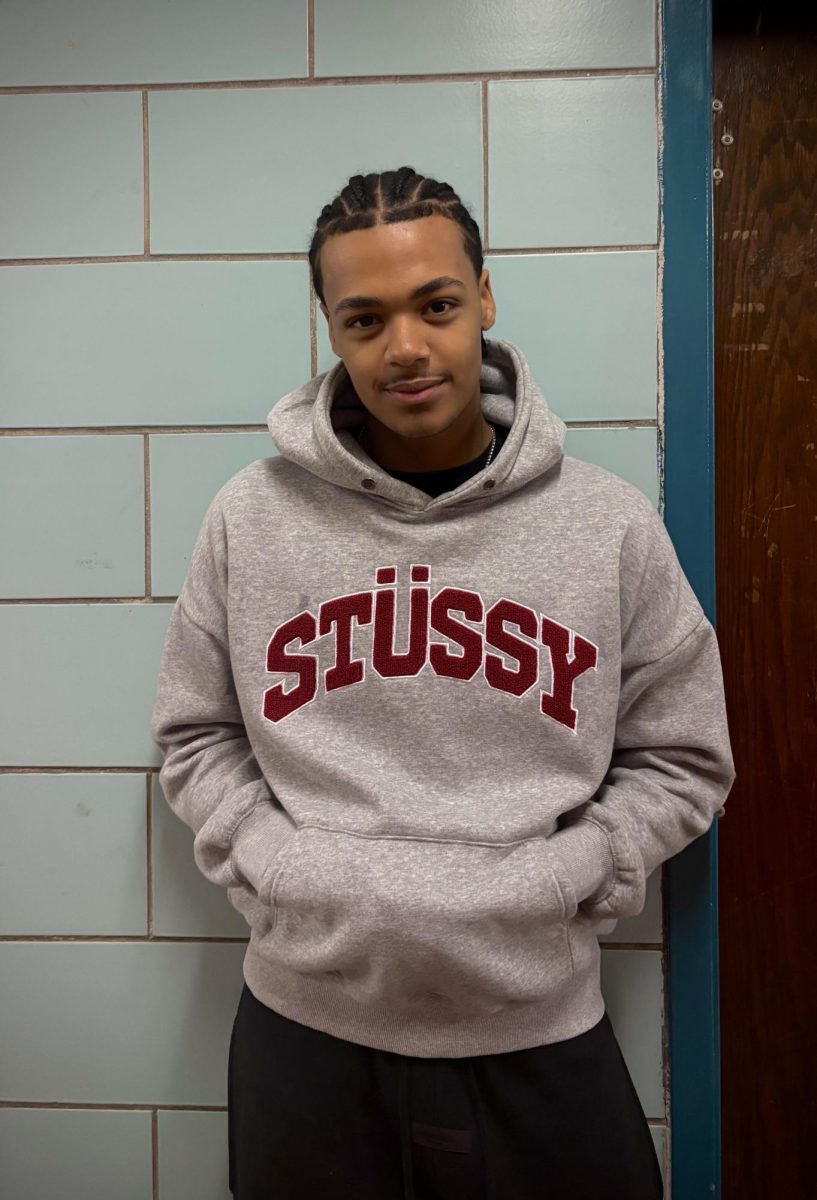
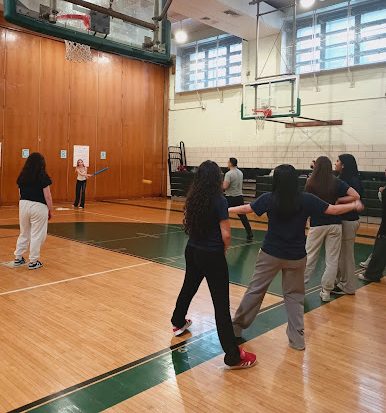












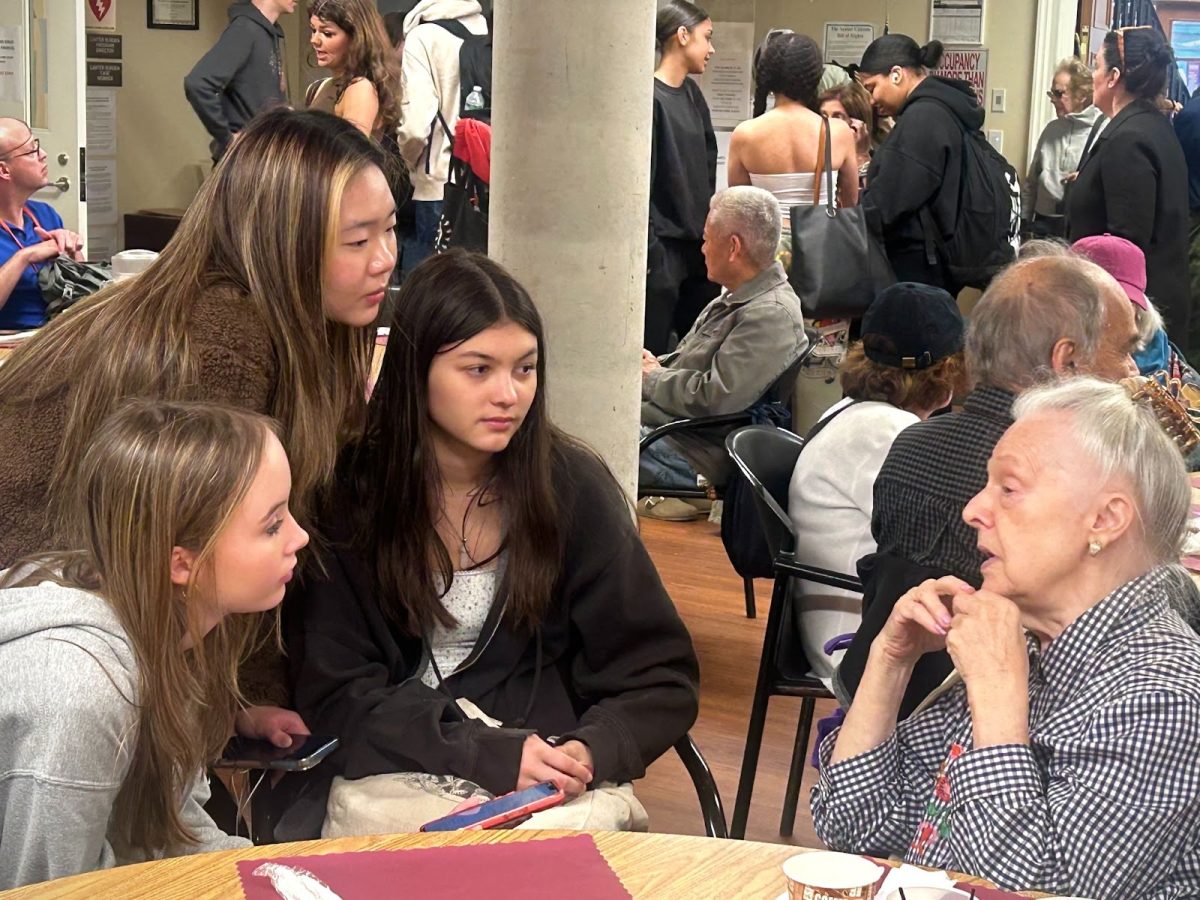
Laurie Kalb Cosmo • Dec 19, 2022 at 8:43 am
Way to go, Lily! So much energy and great writing in this article!! xoxo, Aunt Laurie